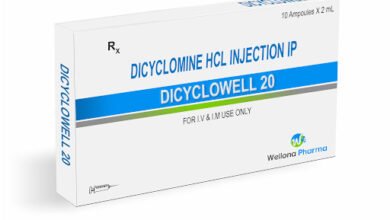Can You Sleep With Contacts – Credihealth Blog

Sleeping with contact lenses is not recommended and can endanger eye health and vision. We get that bedtime after a long day can be all you can think about, and for a restful night of sleep, you should brush your teeth, wear comfortable clothes, and cover yourself under a blanket; you can be dozing off and wearing pajamas. You can still be wearing your contact lenses.
No one likes to get out of bed and settle in for the night, and one-third of the contact lenses can wear off when they have slept in the contacts before, so you can understand that you should not sleep with contacts. In this blog, we will elaborate on sleeping with contact lenses.
What Takes Place When You Sleep With Contacts In?
Having contacts in your eyes while you sleep significantly increases your risk of developing an eye infection, particularly microbial keratitis. Inflammation and infection of the Cornea are symptoms of microbial keratitis.
Although bacteria are frequently to blame for this illness, it can also be caused by viruses, fungi, or parasites. If untreated, it can have extremely dangerous side effects, including vision loss and long-term eye scarring that can result in blindness.
Regardless of the type of contact lens worn, one study found that wearing contacts overnight raised the relative risk of microbial keratitis by more than five times.
Why should you not sleep with contacts in your eyes?
Some of the reasons for not sleeping with contacts in your eyes:-
- According to the CDC, sleeping with contacts in your eyes can increase your keratitis signs and symptoms, eye color, Itching or irritation in or near the watery eyes, and significant ocular discharge, pain, or discomfort nearby responsiveness to light distorted vision.
- You might have acquired an eye infection if you saw any of the above-mentioned signs or symptoms after sleeping with your contacts in. But visiting an optometrist and scheduling an eye exam right away is the only way to be sure.
- Another Risks Associated with sleeping with contacts is microbial keratitis which isn’t the only eye issue to be concerned about if you sleep with your contacts in your eyes. Additionally, you could get conjunctivitis, usually referred to as pink eye.
- Corneal ulcers and corneal hypoxia are conditions in which the Cornea lacks sufficient oxygen. Even if you can avoid the aforementioned, inflammation and discomfort may still exist when you awaken.
- Sleeping in your contact lenses frequently results in dry, painful, or irritated eyes. Additionally, you’ll expose your eyes to any debris under them all night, possibly doing extra harm.
The disturbing effects of sleeping with contact lenses have been highlighted in numerous news headlines, and the CDC also released six case studies in 2019 highlighting how crucial it is to remove your contacts before bed. These links may contain graphic imagery, so be aware of that.
Can Sleeping with Contacts Cause Blindness?
An infection brought on by sleeping with contacts can, in extreme situations, cause visual loss. You can lose vision in the damaged eye if you don’t get treatment. Additionally, you might need surgery or never fully recover your prior visual acuity. Sleeping with contacts in your eyes could alter your vision, so you can no longer use contacts.
Why Is It a Problem to Sleep With Contacts?
When you sleep with your contacts in, it’s simpler for bacteria to colonize the surface of your eye. Researchers are still trying to figure out why this would be the case.
It can result in oxygen deficiency in the Cornea. It was once believed that wearing contacts while sleeping could create an infection because of the lenses. For a while, it was believed that because contacts reduce the amount of air reaching the Cornea, wearing contacts while sleeping would increase the risk of infection. The risk of infection has not decreased as anticipated, despite advances in lens technology that allows increasing amounts of oxygen to reach the eye.
Although wearing the most breathable contact lenses does lessen the severity of an infection, this finding suggests that hypoxia may not be the only factor in the development of infections.
One theory is that the tear film stagnates when people use contact lenses while sleeping. The tear film that covers the surface of your eye shields it from bacteria and other contaminants. When you don’t use contacts, new fluid is added, and some old fluid is removed.
Contact lenses can prevent this tear exchange since they rest over the tear film. Additionally, your tear film can’t carry out its protective role to its utmost while your eyes are closed while you sleep—that is, when you aren’t blinking. Germs have time to spread since they are not rinsed away by water. The more time you spend sleeping in your contacts, the greater the chance of infection.
Interaction of contact lenses occurs with the Eye’s Surface?
Long-term contact lens use may alter the surface of your eye’s physical structure, which could be another contributing factor. According to studies, the ocular surface environment is incredibly sensitive and can even alter form when exposed to contact lens pressure for an extended period.
On the other hand, with daily contacts, you discard your lenses at the end of the day and pick up a new pair to wear each morning. Daily disposable contacts are the most frequently advised type of contact by eye physicians since they are considered a more hygienic alternative.
Why take a chance on complications?
Contact lenses can irritate the eyes and create additional symptoms after even one night of sleep with them. Although persistent and recurring infections are frequently associated with the most severe, Even one night of wearing contacts can result in a dangerous illness.
Can You Sleep for an Hour with Contacts In?
It’s better to avoid sleeping with contacts on, not even for a few hours. Your risk of infection increases each time you sleep with your contacts in. If you’re feeling sleepy, the best course of action is to remove your contacts out of an abundance of caution.
Conclusion-
Eye doctors advise against napping with contacts, and yes, you should not even sleep for shorter than an hour in communications. Eye doctors can advise against napping and irritation or infections in the eyes. You can also wake up with sticky or dry eyes; no one wants that. It is not only good for the eyes because it can result in stickiness in the eyes.
Whether you sleep in contact with one for the night or a few minutes, increasing the risk of severe infections can cause vision loss and blindness. It will be better to leave these contacts out of the eyes for only 24 hours, and you should avoid sleeping in them.
Frequently Asked Questions
What happens when one accidentally sleeps with contacts?
According to the Centres for Disease Control and Prevention, sleeping with cataracts can lead to increased eye infections.
Can one sleep with contact lenses for one hour?
Sleeping with contact lenses can be detrimental to the eyes.
Can one take a 3-minute nap with contacts?
Yes, one can take a nap with contact lenses, but it can still strongly be advised against it.
Can one take a 30-minute nap with contacts?
Although you can take short naps with contact lenses, these should not be advised.
Can I take a 20-minute nap with contacts?
Generally, it is not advised, but these contact lenses can be specified, and falling asleep can lead to infections and irritations.
Source link
#Sleep #Contacts #Credihealth #Blog



